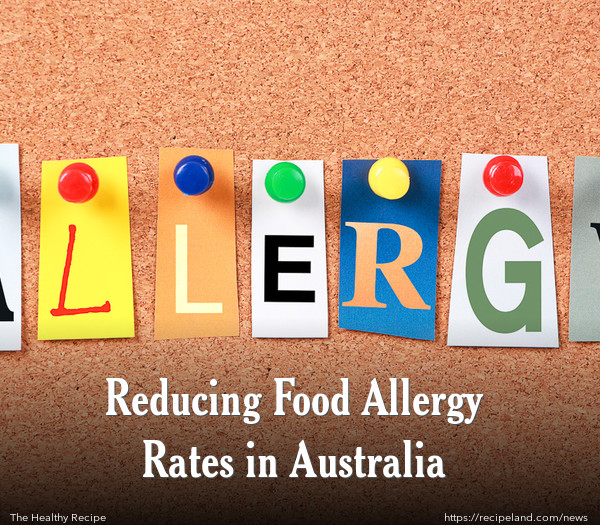Scientists are trying to find out why Australia is facing one of the highest rates of eczema and food allergies in the world – and what the best solutions are. About 20% of Australians suffer from a food allergy and children with allergies may have to wait for over a year before being seen by a pedaetric allergy specialist.
The group of twenty researchers studying food intolerances and allergies have created a project called the “Centre for Research Excellence in Paediatric Food Allergy and Food-related Immune Disorders”.(1)
They first plan to test whether Vitamin D supplements are effective in preventing food allergies. Finding solutions for common food allergens such as peanuts, milk and eggs are also on the list of research studies that will be led through the Murdoch Childrens Research Institute in Melbourne.
Food allergies and eczema in infants and young children have been linked to the development of asthma later in life. Researchers at the Centre hope to prevent childhood food allergies and curb Australia’s alarming rate of allergy related respiratory complications.
Researchers have discovered that 10% of Australian infants suffer from food allergies – far higher than expected. Infants with older siblings and family pets, particularly dogs, may be less susceptible to allergies. Children who are given eggs earlier on are less likely to develop an allergy to eggs. Another important discovery is that levels of Vitamin D are linked to food allergies in infants.
The Murdoch Childrens Research Institute is also working towards dispelling common myths about food allergies. These myths include the misconception that soy formula and soy milk can lead to a peanut allergy, C-section births can increase children’s food allergy risks, avoidance of common food allergens during pregnancy and during breastfeeding can decrease risk, and putting off introducing allergenic foods to infants until older can prevent them from developing a food allergy.
For parents of children with severe food allergies, it is important that your child knows what their allergen is and why it is dangerous. Have an emergency plan in place in the event that your child is exposed to the allergen and needs emergency medical treatment, such as an Epipen. If your child is prescribed an Epipen, remember to always keep it with the child – in your home or purse when you leave the house, at school, and on the school bus.
Teachers and other caregivers need to be aware of your child’s allergy and be trained to use an Epipen in case of an emergency reaction. The same goes for babysitters or friends’ parents when they are off on play dates.
For more mild allergic reactions, discuss less dangerous symptoms such as hives or eczema with your paediatrician. Monitoring what your child eats when symptoms develop and excluding only one common food allergen at a time will help more quickly identify the source of the allergy.
Highly restrictive diets will not prevent food allergies, only the known allergen needs to be avoided. Read labels carefully to be sure that the allergen is not present.
Knowledge is power, so understanding food allergies and being prepared for an emergency should fill both parents and children with more confidence in living with a food allergy - without unnecessary fear.
SOURCES: (1) Centre for Research Excellence in Paediatric Food Allergy and Food-related Immune Disorders at Melbourne's Murdoch Childrens Research Institute: https://www.mcri.edu.au/research/research-projects/cre/










Comments